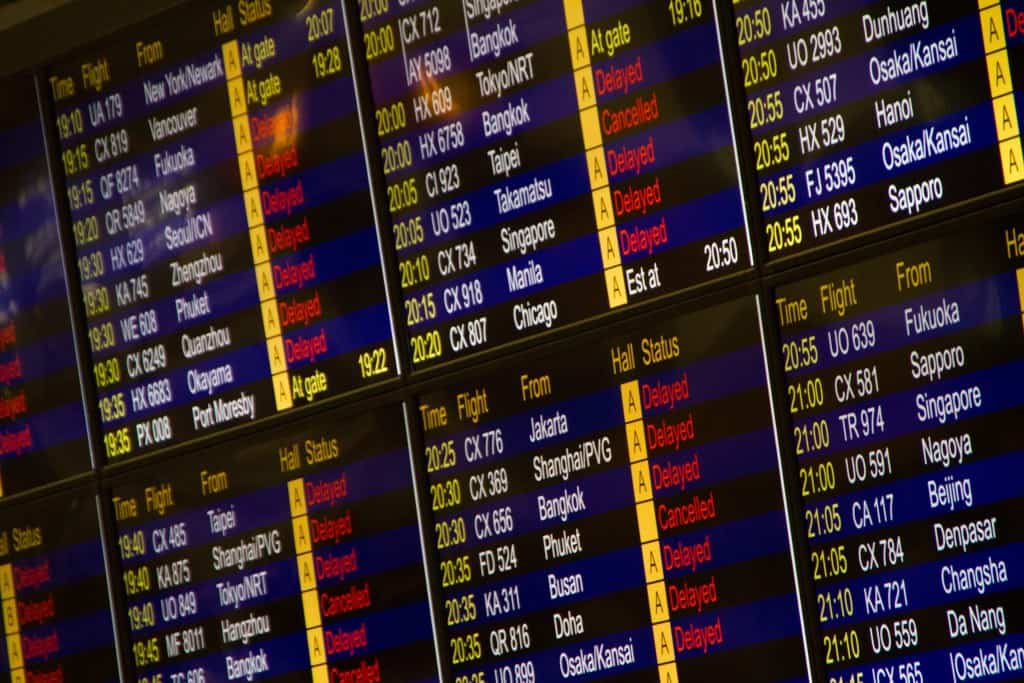Understand your entitlements and claim compensation
All passengers – from the seasoned wanderers to weary business travellers or newbie flyers – have rights, and in many cases are entitled to compensation.
The allure of air travel is undeniable. It promises swift journeys to far-off destinations, connecting cultures and continents. However, flight delays remain an inevitable part of this experience, and while they can be frustrating and drive you to the brink, there is sometimes a silver lining.
battleface reviews your entitlement for an unexpected payday from the bustling airports of Europe to the global hubs across continents. Buckle up!
What isn’t covered
Most regulations don’t require airlines to compensate passengers for delays due to ‘extraordinary circumstances.’ This includes weather, bird strikes, airport personnel strikes, and problems with air traffic control.
Europe: The UK and EU regulations
EU Regulation 261: Originally introduced by the European Commission, this regulation ensures that travelers within the EU are compensated for significant flight delays, cancellations, and instances where boarding is unreasonably denied. Passengers can claim compensation for delays of 3 hours or more, with amounts varying based on the flight distance.
UK261: Post-Brexit, the UK adopted the essence of EC 261, rebranding it as ‘UK261’. The core protections remain, but compensation is now in Pounds (£). Both regulations, however, have ‘extraordinary circumstances’ clauses, exempting airlines from compensating during unforeseen events like natural disasters.

United States: the DOT regulations
US Department of Transportation (DOT) Regulations: In the US, airlines are required to compensate passengers for denied boarding due to overbooking under the DOT’s regulations. However, for flight delays and cancellations, US airlines aren’t legally obligated to provide compensation, but they must offer certain services and reimbursements based on their individual customer service policies.
Asia: varied rights across nations
China – Civil Aviation Administration of China (CAAC) Regulations: Passengers experiencing delays in China are protected under the CAAC regulations. Airlines must provide food, accommodation, and compensation, depending on the length of the delay.
India – Directorate General of Civil Aviation (DGCA) Rules: Indian regulations mandate compensation for denied boarding, cancellations, and delays, with the amount based on the duration of the delay and the flight’s distance.
Canada: the Air Passenger Protection Regulations
In Canada, the Air Passenger Protection Regulations (APPR) governs the rights of air passengers. These regulations ensure that passengers are compensated for flight disruptions that are within the airline’s control and not safety related. Compensation varies based on the length of the delay and the size of the airline.
Australasia: passenger rights Down Under
Australia
While Australia doesn’t have a standardised compensation regulation like the EU, individual airlines have their customer service charters, which outline compensation and care during delays.
New Zealand
The Civil Aviation Act in New Zealand doesn’t mandate airlines to compensate for delays. However, consumer protection laws require airlines to deliver services with ‘reasonable care and skill.’
South America: A mosaic of regulations
South American countries have varied regulations, often based on their national civil aviation authorities. For instance, Brazil’s ANAC mandates compensation for flight delays, while other countries might have less stringent rules. It’s essential to check local regulations based on your departure or arrival country.

Which rules apply? Boarding, landing, and airline nationality
Determining which compensation regulations apply can be a bit complex, as it often depends on a combination of factors:
Boarding and landing
Regulations typically apply based on where the flight departs or arrives. For example, a flight departing from Paris (an EU city) to New York would fall under EC 261, regardless of the airline’s nationality. Conversely, a flight from New York to Paris operated by a non-EU airline might not be covered by EC 261, but if it’s operated by an EU airline, it would be.
Airline nationality
The nationality of the airline can also play a role. For instance, a flight from Tokyo to London on a British airline would be covered by UK261 for the London-bound leg, but a Japanese airline might not offer the same protections for the same route.
Lost in transit: the awareness dilemma
Despite these robust protections, a staggering 86% of passengers remain unaware of their rights, leading to unclaimed compensations. This gap underscores the importance of traveller education. Knowledge isn’t just power—it could also mean a ticket to your next destination.
Final boarding call
From Europe to Asia, the Americas, and Oceania, regulations aim to protect air passengers. While the specifics might vary, the essence remains: as a traveller, you have rights. So, the next time your flight is delayed, remember to check your entitlements.
With the right knowledge, the skies can indeed be friendlier. Safe travels!








